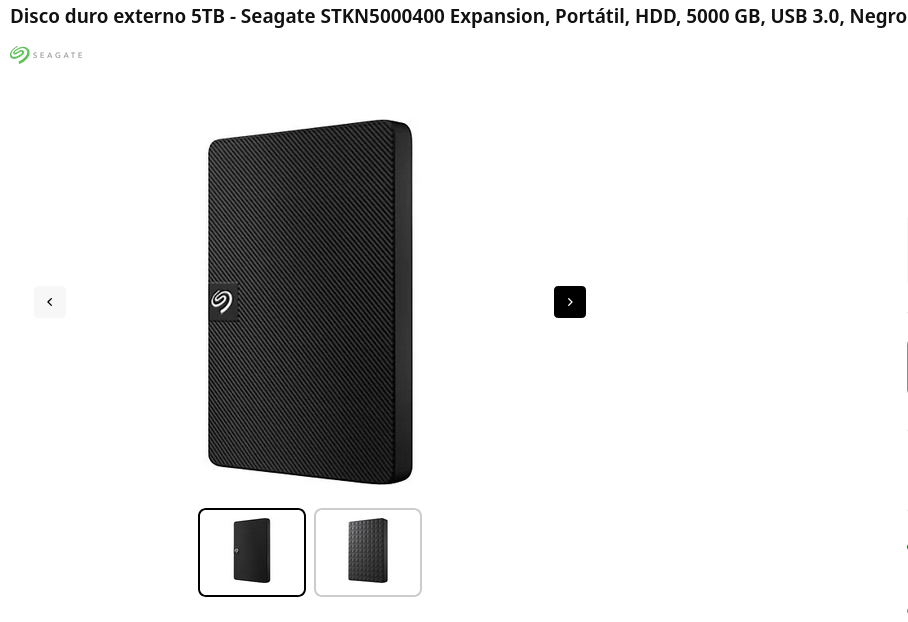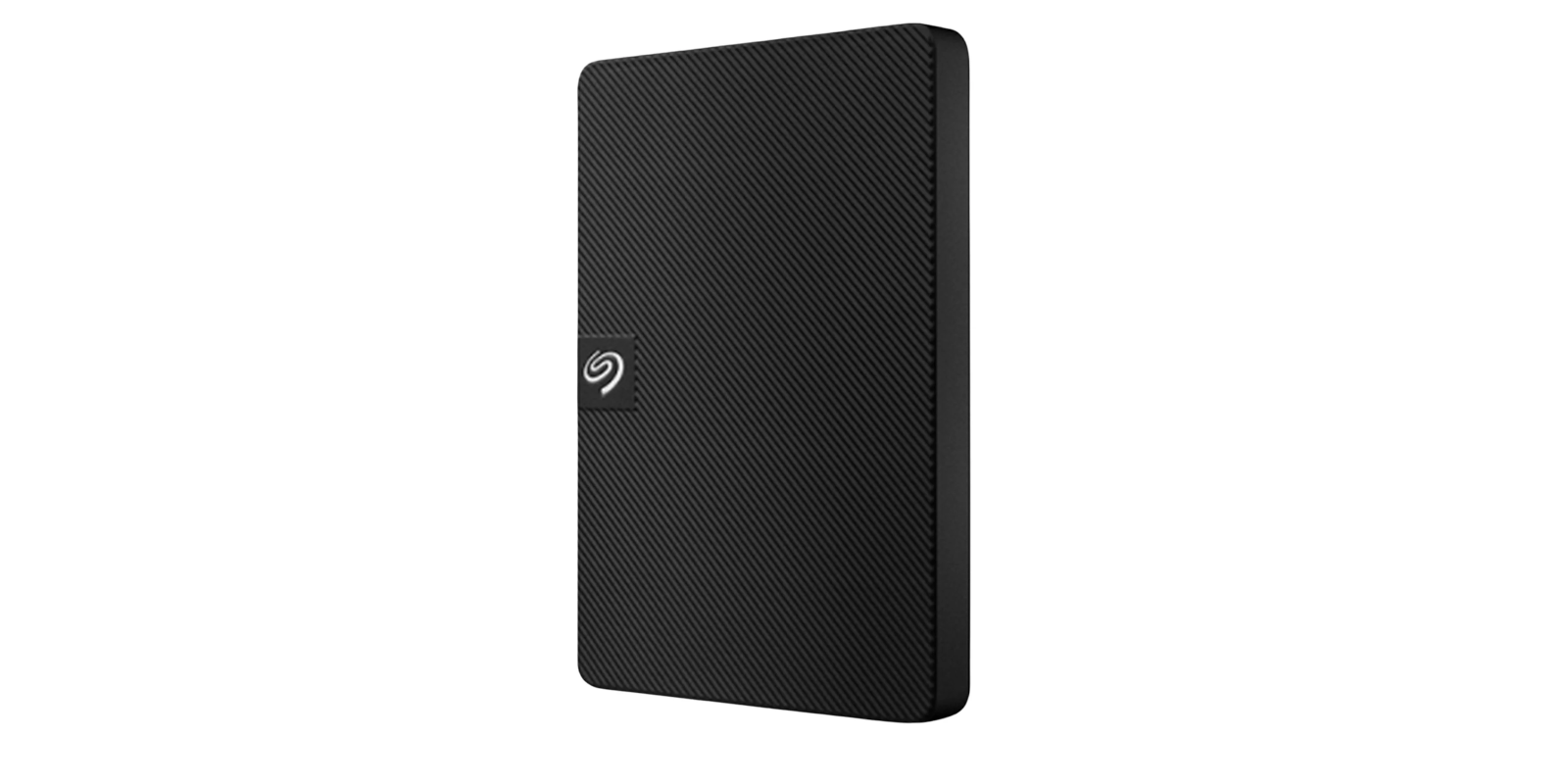Last Christmast I received a new external USB Disk for my Raspberry PI 4.
In this Raspi I have a set of SMB mounts to use for several things including:
- PS2 USB share (for loading PS2 games)
- General SMB share
- Backup of different Internet repositories I own
Previous disk was a Western Digital one that entered standby automatically after some time but my new one a 5TB Seagate was not spinning down

I research in the issue and after some time, I found out that the OS (10 Buster) was not being able to use SMART in this drive and the drive firmware seems not to have automatic power down.
The OS, using SMART, can configure automatic spindown after some time being inactive, and this is what I wanted. So, after installing smart tools package (it wasn't install in my Raspi):
sudo apt-get install smartmontools
And trying to do anything with the drive, I was getting errors regarding not supported USB drive:
Read Device Identity failed: scsi error unsupported field in scsi command
After some digging (and thinking that the USB drive from Seagate was not appropiate for the usage I wanted) I found out the issue. The problem was that the drive was using the UAS module in the operating system and this module was generating the issue with SMART mon tools, so, let's configure Raspberry PI OS for not using UAS for this drive.
Get Vendor and Product ID
fms@gate:~ $ lsusb
Bus 002 Device 003: ID 0bc2:2034 Seagate RSS LLC
Bus 002 Device 001: ID 1d6b:0003 Linux Foundation 3.0 root hub
Bus 001 Device 002: ID 2109:3431 VIA Labs, Inc. Hub
Bus 001 Device 001: ID 1d6b:0002 Linux Foundation 2.0 root hub
In my case it was Vendor ID 0bc2 and Product ID 2034.
Configure Raspberry PI OS boot sequence to not use UAS for this device.
Edit /boot/cmdline.txt and add the following parameter to the kernel loading (ensure to put the correct Vendor and Product ID you got in the previous step):
usb_storage.quirks=0bc2:2034:u
The cmdline file should look like this:
console=serial0,115200 console=tty1 root=PARTUUID=8c926f11-02 rootfstype=ext4 elevator=deadline fsck.repair=yes usb_storage.quirks=0bc2:2034:u rootwait
And reboot the Raspi to apply this setting.
Check the drive is accesible for SMART mon tools
After reboot, execute a sample smartctl command to ensure the drive is acceisble for SMART tools, for example (if your drive is mapped to /dev/sda):
sudo smartctl -a /dev/sda -d sat
You should get a full SMART response, similar to this one:
smartctl 6.6 2017-11-05 r4594 [armv7l-linux-5.4.79-v7l+] (local build)
Copyright (C) 2002-17, Bruce Allen, Christian Franke, www.smartmontools.org
=== START OF INFORMATION SECTION ===
Model Family: Seagate Barracuda 2.5 5400
Device Model: ST5000LM000-2AN170
Serial Number: FMSSN
LU WWN Device Id: 5 000c50 0f21e09d5
Firmware Version: 0001
User Capacity: 5.000.981.078.016 bytes [5,00 TB]
Sector Sizes: 512 bytes logical, 4096 bytes physical
Rotation Rate: 5526 rpm
Form Factor: 2.5 inches
Device is: In smartctl database [for details use: -P show]
ATA Version is: ACS-3 T13/2161-D revision 5
SATA Version is: SATA 3.1, 6.0 Gb/s (current: 3.0 Gb/s)
Local Time is: Sun Jan 7 11:49:27 2024 CET
SMART support is: Available - device has SMART capability.
SMART support is: Enabled
=== START OF READ SMART DATA SECTION ===
SMART overall-health self-assessment test result: PASSED
General SMART Values:
Offline data collection status: (0x00) Offline data collection activity
was never started.
Auto Offline Data Collection: Disabled.
Self-test execution status: ( 0) The previous self-test routine completed
without error or no self-test has ever
been run.
Total time to complete Offline
data collection: ( 0) seconds.
Offline data collection
capabilities: (0x73) SMART execute Offline immediate.
Auto Offline data collection on/off support.
Suspend Offline collection upon new
command.
No Offline surface scan supported.
Self-test supported.
Conveyance Self-test supported.
Selective Self-test supported.
SMART capabilities: (0x0003) Saves SMART data before entering
power-saving mode.
Supports SMART auto save timer.
Error logging capability: (0x01) Error logging supported.
General Purpose Logging supported.
Short self-test routine
recommended polling time: ( 1) minutes.
Extended self-test routine
recommended polling time: ( 808) minutes.
Conveyance self-test routine
recommended polling time: ( 2) minutes.
SCT capabilities: (0x30a5) SCT Status supported.
SCT Data Table supported.
SMART Attributes Data Structure revision number: 10
Vendor Specific SMART Attributes with Thresholds:
ID# ATTRIBUTE_NAME FLAG VALUE WORST THRESH TYPE UPDATED WHEN_FAILED RAW_VALUE
1 Raw_Read_Error_Rate 0x000f 076 069 006 Pre-fail Always - 44189864
3 Spin_Up_Time 0x0003 096 096 000 Pre-fail Always - 0
4 Start_Stop_Count 0x0032 100 100 020 Old_age Always - 29
5 Reallocated_Sector_Ct 0x0033 100 100 010 Pre-fail Always - 0
7 Seek_Error_Rate 0x000f 065 060 045 Pre-fail Always - 3102614
9 Power_On_Hours 0x0032 100 100 000 Old_age Always - 455 (149 190 0)
10 Spin_Retry_Count 0x0013 100 100 097 Pre-fail Always - 0
12 Power_Cycle_Count 0x0032 100 100 020 Old_age Always - 13
183 SATA_Downshift_Count 0x0032 100 100 000 Old_age Always - 0
184 End-to-End_Error 0x0032 100 100 099 Old_age Always - 0
187 Reported_Uncorrect 0x0032 100 100 000 Old_age Always - 0
188 Command_Timeout 0x0032 100 100 000 Old_age Always - 0
189 High_Fly_Writes 0x003a 100 100 000 Old_age Always - 0
190 Airflow_Temperature_Cel 0x0022 075 052 040 Old_age Always - 25 (Min/Max 25/40)
191 G-Sense_Error_Rate 0x0032 100 100 000 Old_age Always - 0
192 Power-Off_Retract_Count 0x0032 100 100 000 Old_age Always - 19
193 Load_Cycle_Count 0x0032 100 100 000 Old_age Always - 77
194 Temperature_Celsius 0x0022 025 048 000 Old_age Always - 25 (0 18 0 0 0)
195 Hardware_ECC_Recovered 0x001a 076 069 000 Old_age Always - 44189864
197 Current_Pending_Sector 0x0012 100 100 000 Old_age Always - 0
198 Offline_Uncorrectable 0x0010 100 100 000 Old_age Offline - 0
199 UDMA_CRC_Error_Count 0x003e 200 200 000 Old_age Always - 0
240 Head_Flying_Hours 0x0000 100 253 000 Old_age Offline - 37 (147 102 0)
241 Total_LBAs_Written 0x0000 100 253 000 Old_age Offline - 3925279266
242 Total_LBAs_Read 0x0000 100 253 000 Old_age Offline - 3612908854
254 Free_Fall_Sensor 0x0032 100 100 000 Old_age Always - 0
SMART Error Log Version: 1
No Errors Logged
SMART Self-test log structure revision number 1
No self-tests have been logged. [To run self-tests, use: smartctl -t]
SMART Selective self-test log data structure revision number 1
SPAN MIN_LBA MAX_LBA CURRENT_TEST_STATUS
1 0 0 Not_testing
2 0 0 Not_testing
3 0 0 Not_testing
4 0 0 Not_testing
5 0 0 Not_testing
Selective self-test flags (0x0):
After scanning selected spans, do NOT read-scan remainder of disk.
If Selective self-test is pending on power-up, resume after 0 minute delay.
We are almost there. We need SMART mon tools to be configure for setting up the spindown timer when the drive is connected to the Raspi (or the system is rebooted).
Setup a UDEV rule for setting the automatic spindown on inactivity
udev service will be the one handling the connecting of the USB drive, and as such, we can create a custom rule to automatically configure the spindown time.
The following command will create a file in the udev files folder and configure a 300 seconds spindown time (standby parameter represents a 5 seconds factor) for any "sdX" disk that is attached to the Raspi:
cat >/etc/udev/rules.d/69-usbstandby.rules <<EOF
ACTION=="add|change", KERNEL=="sd[a-z]", ATTR{queue/rotational}=="1", RUN+="/usr/sbin/smartctl --set standby,60 -d sat /dev/%k"
EOF
Everything is ready and OK. You can check wheter this is working properly if, after 5 minutes (in my config) you can check that the drive is in standby mode. This can be done executing the following command:
sudo smartctl --nocheck standby -i /dev/sda -d sat | grep "STANDBY"
Device is in STANDBY mode, exit(2)
If you can see the response as in the example, your drive has been spinned down successfully.
Please note the --nocheck param as this will avoid smartctl spinning up the disk for SMART queries.
